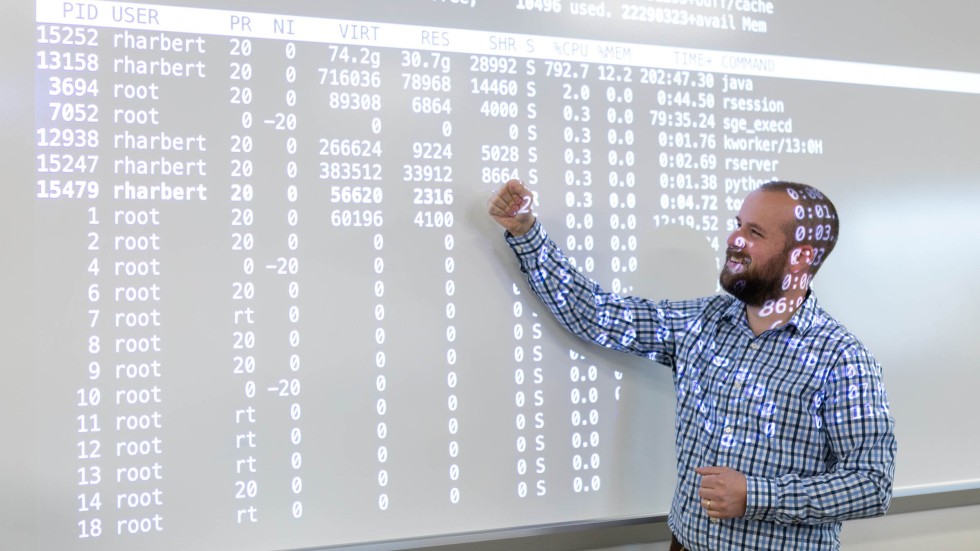Register for a Graduate Business Course
Our non-degree option gives you the unique opportunity to take up to two graduate-level courses before applying for admission.

Advance Your Professional Development
Are you interested in Stonehill’s master's degree and graduate certificate business programs, offered through our Meehan School of Business, but not sure you’re ready for an advanced degree?
Our non-degree option gives you the unique opportunity to take up to two graduate-level courses this spring to get to know Stonehill before formally applying to enroll in a program. Credits earned count toward your degree if you decide to matriculate in the program.
Whether you're seeking a master's degree, graduate certificate, or you wish to advance your professional development with a single course, Stonehill can help you reach your goals.
5 Reasons to Take a Course This Spring
- Accelerate your career advancement
Stonehill College’s graduate business courses provide you with relevant industry knowledge and valuable skills that can help you earn a promotion, transition to a new field or strengthen your expertise in your current role. - Flexible learning formats
We understand the demands of balancing work, life and education. That’s why we offer online and hybrid evening classes to accommodate your schedule, allowing you to pursue your degree without disrupting other commitments. - Learn from industry-experienced faculty
Courses are led by our exceptional Meehan School of Business faculty, who are accomplished business leaders renowned for their skills in areas like entrepreneurship, critical thinking and ethical leadership. Their industry experience brings real-world perspective to the classroom. - Earn your degree from an AACSB-accredited business program
Stonehill’s business program is accredited by AACSB International, a distinction held by fewer than 6% of business programs worldwide. This accreditation reflects our commitment to high-quality education and prepares students for leadership roles in competitive industries. - Apply credits earned to a degree or certificate
Make the most of your spring by earning credits at Stonehill that apply toward a degree or professional certificate, moving you one step closer to your academic and professional goals.
Spring 2026 Online Course Offerings
Today's leaders are challenged with improving the efficiency and effectiveness of the current environment as well as driving innovation and change to spur growth. This course combines the topics of operations management and project management to provide students with the skills to manage both aspects of the organization. This course focuses on the skill set and knowledge needed to manage specific, time-bound projects alongside the ongoing, day-to-day operations of an organization. Key topics include lean techniques, total quality management, Six Sigma, operations management, and project, program, and portfolio management. Emphasis will also be placed on team dynamics and management as they relate to successfully completing short-term projects and meeting long-term organizational goals. Students will gain exposure to software, tools, and simulations to apply key concepts to real-life managerial situations.
This course runs March 16–May 3 on Tuesdays from 7–9:30 p.m.
This course focuses on developing the leadership and management skills necessary for success in entrepreneurial ventures. Students will explore how entrepreneurs lead and manage their businesses through the phases of startup, growth, and scaling, with a focus on creating value, building strong teams, and driving innovation. The course emphasizes practical strategies for navigating the challenges faced by entrepreneurs, such as resource constraints, risk management, and market competition. Students will learn how to effectively lead teams, make strategic decisions, and foster a culture of innovation within their organizations. The course covers key aspects of entrepreneurial management, including operational efficiency, financial oversight, and growth strategies, equipping students with the tools to lead successfully in both small businesses and high-growth startups.
This course runs March 16–May 3 on Tuesdays from 4–6:30 p.m.
The digital marketing course explores several aspects of the new digital marketing environment, including topics such as digital marketing analytics, search engine optimization, and 3D Printing. It will provide a richer understanding of the foundations of the new digital marketing landscape and a new set of stories, concepts, and tools to help the students digitally create, distribute, promote, and price goods and services.
This course runs March 16–May 3 on Wednesdays from 7–9:30 p.m.
Students will be introduced to the contributions and potential of a graphic designer as part of a marketing team. The workflow, the technological tools utilized, useful terminology and project pacing will be covered. Students will be exposed to the visual problem-solving angle within marketing. In addition, basic design principles and the ability to identify effective design modules will be introduced.
This course runs March 16–May 3 on Wednesdays from 4–6:30 p.m.
Featured Courses
Entrepreneurial Leadership & Management
Spring 2026 On-Campus Course Offerings
Today's leaders are challenged with improving the efficiency and effectiveness of the current environment as well as driving innovation and change to spur growth. This course combines the topics of operations management and project management to provide students with the skills to manage both aspects of the organization. This course focuses on the skill set and knowledge needed to manage specific, time-bound projects alongside the ongoing, day-to-day operations of an organization. Key topics include lean techniques, total quality management, Six Sigma, operations management, and project, program, and portfolio management. Emphasis will also be placed on team dynamics and management as they relate to successfully completing short-term projects and meeting long-term organizational goals. Students will gain exposure to software, tools, and simulations to apply key concepts to real-life managerial situations.
This course runs March 16–May 3 on Tuesdays from 7–9:30 p.m.
This course focuses on developing the leadership and management skills necessary for success in entrepreneurial ventures. Students will explore how entrepreneurs lead and manage their businesses through the phases of startup, growth, and scaling, with a focus on creating value, building strong teams, and driving innovation. The course emphasizes practical strategies for navigating the challenges faced by entrepreneurs, such as resource constraints, risk management, and market competition. Students will learn how to effectively lead teams, make strategic decisions, and foster a culture of innovation within their organizations. The course covers key aspects of entrepreneurial management, including operational efficiency, financial oversight, and growth strategies, equipping students with the tools to lead successfully in both small businesses and high-growth startups.
This course runs March 16–May 3 on Tuesdays from 4–6:30 p.m.
This course will cover how to learn the basics of golf, including putting, chipping, pitching, iron shots and drives. It will also teach students about the power of golf in business situations and creating effective, long-term relationships. We will cover the history of the game, golf as a business and branding platform, fan behavior, and attracting more diversity to the game. Other topics include rules, etiquette, and more. Course will include clinics on and off the golf course. Taught by a PGA professional with special appearances from area experts in the game.
This course runs March 16–May 3 on Thursdays from 4–6:30 p.m.
The digital marketing course explores several aspects of the new digital marketing environment, including topics such as digital marketing analytics, search engine optimization, and 3D Printing. It will provide a richer understanding of the foundations of the new digital marketing landscape and a new set of stories, concepts, and tools to help the students digitally create, distribute, promote, and price goods and services.
This course runs March 16–May 3 on Wednesdays from 7–9:30 p.m.
Students will be introduced to the contributions and potential of a graphic designer as part of a marketing team. The workflow, the technological tools utilized, useful terminology and project pacing will be covered. Students will be exposed to the visual problem-solving angle within marketing. In addition, basic design principles and the ability to identify effective design modules will be introduced.
This course runs March 16–May 3 on Wednesdays from 4–6:30 p.m.
Business Tuition & Fees
Tuition and fees for the business programs are calculated on a per-credit basis. Additional fees may apply.
Contact Us With Any Questions
Graduate & Professional Studies Admission assists students as they explore graduate and professional opportunities offered at Stonehill College.

